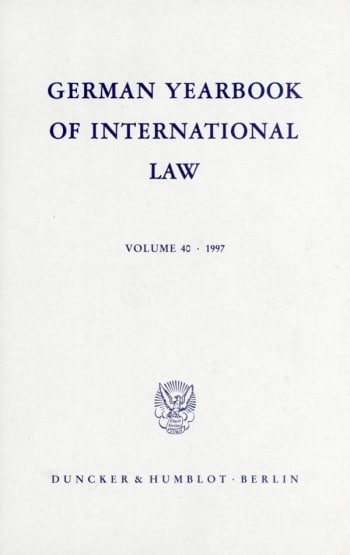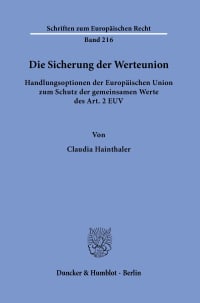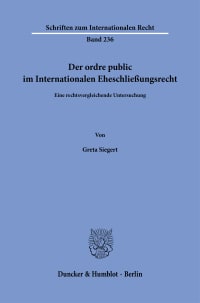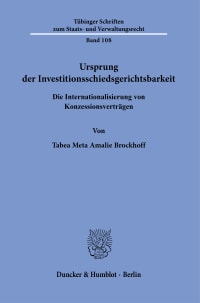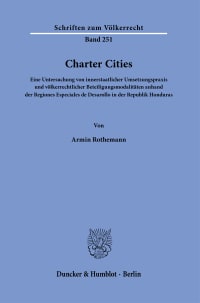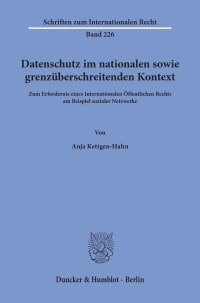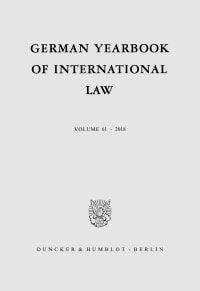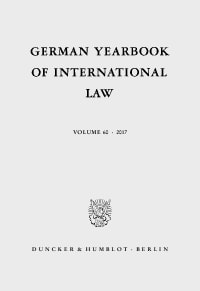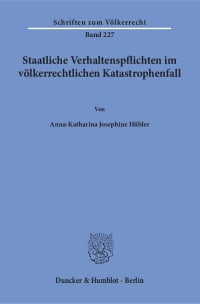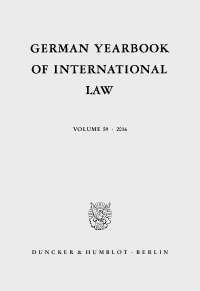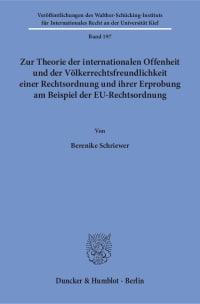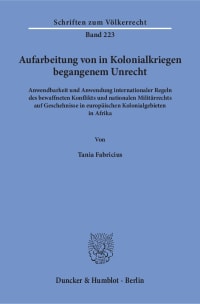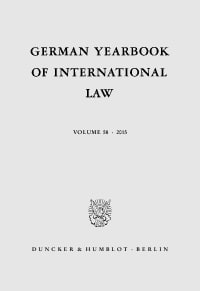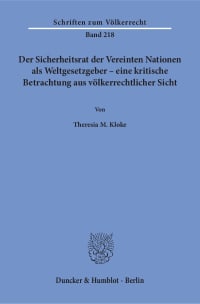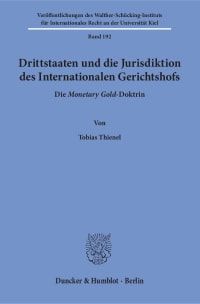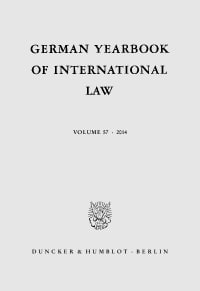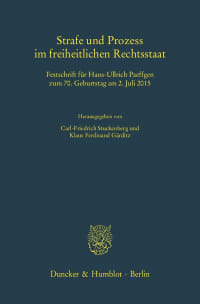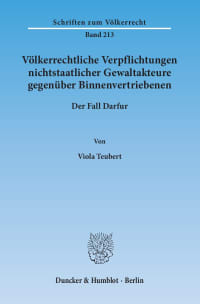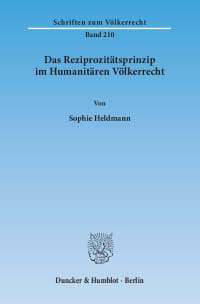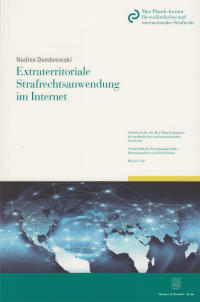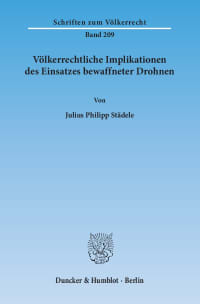Vol. 40 (1997)
Beschreibung
The German Yearbook of International Law was founded in 1948 by Rudolph Laun and Hermann von Mangoldt as the "Jahrbuch für Internationales Recht". The Yearbook is currently edited by the Walther-Schücking-Institute for International Law at the University of Kiel, and it continues to follow in its tradition of offering learned contributions to the development of international law. Although German scholars were once the primary contributors to the Yearbook, today authors from throughout the world are welcomed to publish their English language, and occasionally French language, articles. This trend has helped the Yearbook further open itself to new readers.
It is the goal of the Yearbook's editors to create a free forum for the discussion of international law that is available to the largest possible international audience. To this end, the Yearbook has remained progressive by discussing timely topics of interest and concern to international legal academics and practitioners. Its editors have also modified the Yearbook's approach to the field in recent years by offering a focus section in each volume that considers issues of particular importance to the further development of international law. The Yearbook has also been successful in informing the international law community with regard to research done in German academic institutions and in presenting international viewpoints on various topics to the German community.
In addition, the Yearbook publishes annual reports on the work of international organizations that make significant contributions to international law. These reports are, for the most part, published in German and review the current activities of bodies such as the International Court of Justice and the European Court of Human Rights. Contributors to the Yearbook include the full spectrum of individuals involved in the discussion of international law, including academics, practitioners, and students of the subject. The editors, in compiling each volume of the Yearbook, recognize the importance of allowing for discussion of the full range of opinions on international legal issues and especially encourage the expression of new ideas and legal theories that encourage further growth in the field of international law.
Inhaltsübersicht
Inhalt: A. Peters, The Position of International Law Within the European Community Legal Order - J. J. Paust, Customary International Law in the United States: Clean and Dirty Laundry - B. Stephens, Expanding Remedies for Human Rights Abuses: Civil Litigation in Domestic Courts - I. I. Lukashuk, Treaties in the Legal System of Russia - T. Schweisfurth / R. Alleweldt, The Position of International Law in the Domestic Legal Orders of Central and Eastern European Countries - J. W. F. Sundberg, The European Convention on Human Rights and the Nordic Countries - I. Ziemele, The Application of International Law in the Baltic States - B. Stern, La compétence universelle en France: le cas des crimes commis en ex-Yougoslavie et au Rwanda - D. P. Fidler, Trade and Health: The Global Spread of Diseases and International Trade - R. Hofmann, Minority Rights: Individual or Group Rights? A Comparative View on European Legal Systems - E. Johnson, Hong Kong after 1997: A Free City? - G. Noll, Prisoners' Dilemma in Fortress Europe: On the Prospects for Equitable Burden-Sharing in the European Union - R. Schärer, The European Convention on Nationality - U. E. Heinz, Die Rechtsprechung des Internationalen Gerichtshofes in den Jahren 1995 und 1996 - M. Niestedt / D. Ziegenhahn, Die Rechtsprechung des Europäischen Gerichtshofes für Menschenrechte im Jahre 1996 - M. Mennecke / C. Tams, Die Tätigkeit des Ministerkomitees und der Parlamentarischen Versammlung des Europarates in den Jahren 1995 und 1996 - J. Föh / I. Wiesner, Die Tätigkeit der International Law Commission in den Jahren 1995 und 1996
Bücher aus denselben Fachgebieten
Kontakt
-
+49 30 / 79 00 06 - 0
-
Bestellinformation
-
Versandkostenfrei innerhalb Deutschlands.
-
Für Kunden aus EU-Ländern verstehen sich unsere Preise inklusive der gesetzlichen Mehrwertsteuer und – außer bei digitalen Publikationen – zuzüglich Versandkosten. Für Kunden aus Nicht-EU-Ländern verstehen sich unsere Preise als mehrwertsteuerfrei und – außer bei digitalen Publikationen – zuzüglich Versandkosten.
-
-
Newsletter
